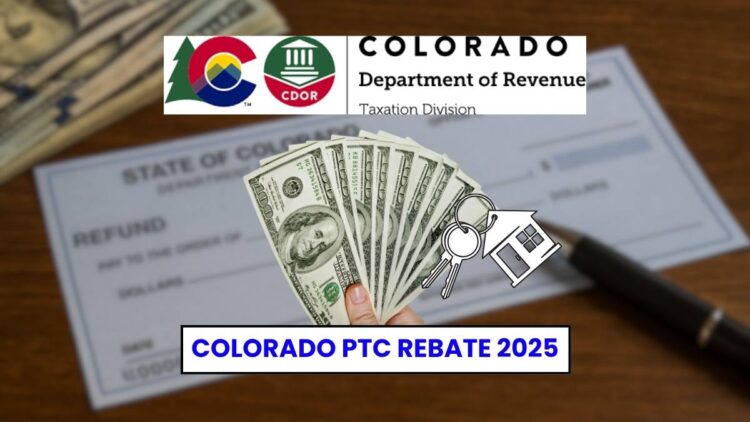The Department of Revenue, Colorado, is issuing the PTC rebate for low-income residents and disabled individuals. It is being received by those who have already submitted an application. Here, we have shared about eligibility, payout, and other details.
The Colorado Property Tax, Rent, and Heat (PTC) rebate is being received by eligible individuals to help them with their property tax, rent, and/or heat expenses in the winter and beyond. Under this rebate program, the maximum amount one can get in a year is $1,154.
Individuals who have applied by October 15, 2025, are also entitled to get the TABOR refund. The maximum amount for singles is $177 and $334 for couples. The payment for many eligible Colorado residents is sent out, and the remaining will be received soon.
Who is eligible for the Colorado PTC Rebate 2025?
To get the Property Tax, Rent, and Heat (PTC) rebate in Colorado, it is mandatory that you meet eligibility criteria. The requirements to get this payment are as follows:
- You must be a citizen of the United States of America and live in Colorado through the year 2024.
- Your income shouldn’t be below $18,704 as a single filer; the same for married filing jointly is $25,261.
- You have paid property tax, rent, or heating bills in 2024 and aren’t claimed as a dependent on anyone’s federal tax return for tax year 2024.
Additionally, it is mandatory that you meet any of the following conditions as of December 31, 2025.
- You have turned 65 years old.
- You are a surviving spouse who is aged at least 58 years.
- You are a disabled person.
Note that if you divorced your spouse before his or her death, you aren’t eligible to get this benefit from the Colorado DoR.
How can I get this benefit?
To get the PTC rebate, you are required to submit an application by the due date. Note the deadline to apply for this benefit is December 31, 2026. As October 15, 2025, has passed, you can get the TABOR refund if you have not yet submitted your application form.
Note that application forms that were received, approved, and processed before September 10, 2025, have already received half of the total benefit on October 5 and 15, 2025, in the case of direct deposit and paper check, respectively.
The next payment is all set to send out on January 5 and 15, 2026, via direct deposit and paper check, respectively, for the applications received, approved, and processed before December 10, 2025.
If you apply on or after December 10, 2025, you have to wait for 10 weeks to get the direct deposit, and the waiting time for the paper check is 12 weeks. If you haven’t yet applied, you are recommended to do so ASAP.
How much will I get?
The maximum you can get from the PTC rebate is $1,154. If your application was received, approved, and processed before March 10, 2025, till now you would have received three installments of $288.5 each, and the last one is all set to be received by you on 5 or 15 January 2026.
Similarly, if your application was received, approved, and processed before June 10, 2025, so far, you have received two installments of $385.66 each, and your last one is going to be received on 5 or 15 January 2026.
Likewise, an installment of $577 is already sent out on 5 and 15 October 2025 for the application, which was received, approved, and processed before September 10, 2025, and the last one will be received on 5 or 15 January 2026.
How to apply for this benefit?
To apply for the Colorado Property Tax, Rent, and Heat (PTC), go through the step-by-step instructions available below.
- Go to the official website of the Department of Revenue, Colorado, at https://tax.colorado.gov/.
- Jump to the section of ‘How Do I Apply For The PTC Rebate?,’ tap on ‘Revenue Online,’ and go to the next page.
- Look out for the option and tap on ‘File a PTC Rebate Application’ to get redirected to another page.
- Choose the year, fill in required details, attach documents, choose the payment method to get payout, and then submit the application form.
Disclaimer: Colorado PTC Rebate 2025 information is for reference only. Actual eligibility and payment amounts are determined by official state authorities.



